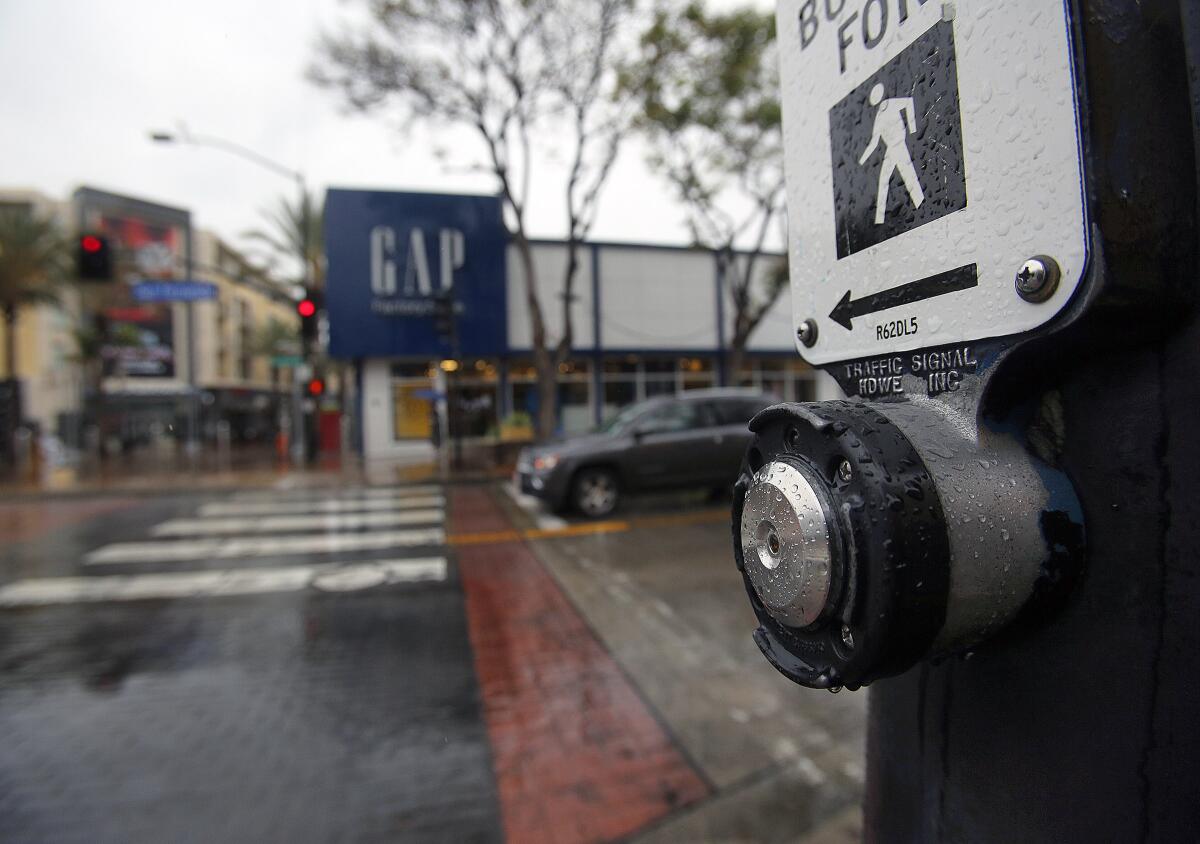Coronavirus pandemic prompts Burbank to automate its walk signals

- Share via
Pedestrians in Burbank will no longer need to worry about pressing a button at traffic intersections to activate the walk signal as the city has automated the process in response to the coronavirus pandemic.
The move is meant to lessen the risk of transmitting the virus that causes COVID-19. According to lab tests conducted by the U.S. government and scientists around the world, the virus can live up to two to three days on stainless-steel surfaces.
The automated signaling will be in effect every day from 6:30 a.m. to 10 p.m.
Prior to their implementation citywide, the only intersections with automated walk signals in Burbank were found in the downtown area.
Simone McFarland, a spokeswoman for the city, said the automated walk signals will eventually be lifted after the crisis is over and traffic levels in Burbank return to normal.
“The city anticipates pedestrian traffic to decrease once the Safer at Home health order is lifted and, therefore, the automatic walk signals will cause unnecessary delays to vehicles,” she said.
McFarland added that the city may reautomate certain intersections depending on traffic and pedestrian flow.
Automating walk signals is not a unique tactic in slowing the spread of the novel coronavirus. Los Angeles automated more than 400 intersections across the city around the same time Burbank made its own switch, McFarland said.
In addition to the walk signals, other strategies Burbank has implemented to help slow the spread of the virus include issuing social-distancing guidelines for retailers and mandating masks be worn by employees and customers at essential businesses.
